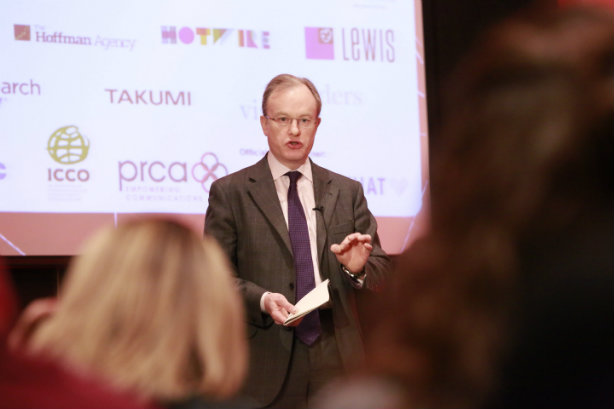
Aiken, who leads the GCS, was speaking to PRWeek as the
"Under the old framework, you had to set out in great detail the specifications of what you required - we need some marketing, some PR, some listening, 50 per cent this, etc. The new roster goes from government specifying the solution, to government asking the question," he said, explaining that public bodies would now have the freedom to ask roster firms for their suggestions of how to "solve a particular problem".
The framework is live immediately. The selected agencies were informed last week, and are now studying and signing their contracts, with a number having already returned these.
"I wanted to get it finalised before Christmas, but really the work will start in the New Year," said Aiken, going on to say that he expected the first campaigns created thanks to the roster to launch from the start of the new financial year, in April 2017.
All Government departments are obliged to use roster firms for campaigns. What Aiken described as "the main arm's-length bodies" are also obliged to use it, while smaller bodies and organisations such as local authorities, fire services and others may choose whether or not they wish to create their campaigns through it.
Of the campaigns he expected the roster agencies to create, Aiken said: "They range from the big campaigns we have to promote the Northern Powerhouse or the Midlands engine, through apprenticeships, and then the perennial things like blood donation, public health, military recruitment."
Asked when public bodies would be encouraged to use in-house resource rather than spend money on outside support, he said: "In public health you probably do need a big marketing campaign, but then equally with something like Small Business Saturday, for example, you might not, and it can be done in-house. We have a presumption that work will be done in-house - the bulk of Government communications is done in-house."
Asked whether the roster might have new agencies added to it over its four-year term, he suggested not, saying: "It’s my intention that this will run for the full duration".
Aiken said he had attempted to "simplify" the process of applying to be on the roster, and through various events and its work with the CIPR, PRCA and others, had liaised without around 600 agencies during the application period. "There were some brilliant, world-class submissions, there were also some very ordinary submissions, but overall it's UK PR, and the standard is very high," he said.
A version of this article was first published on



.jpg)
.jpeg)
